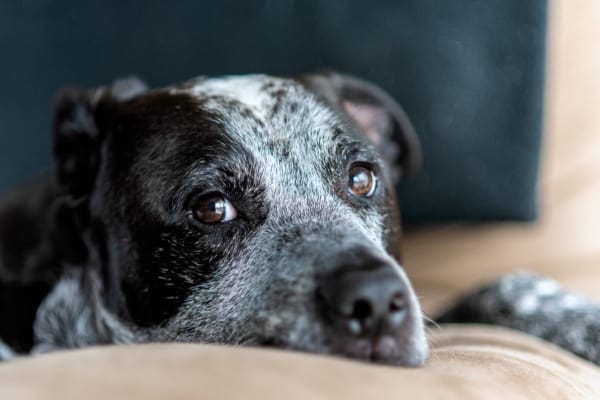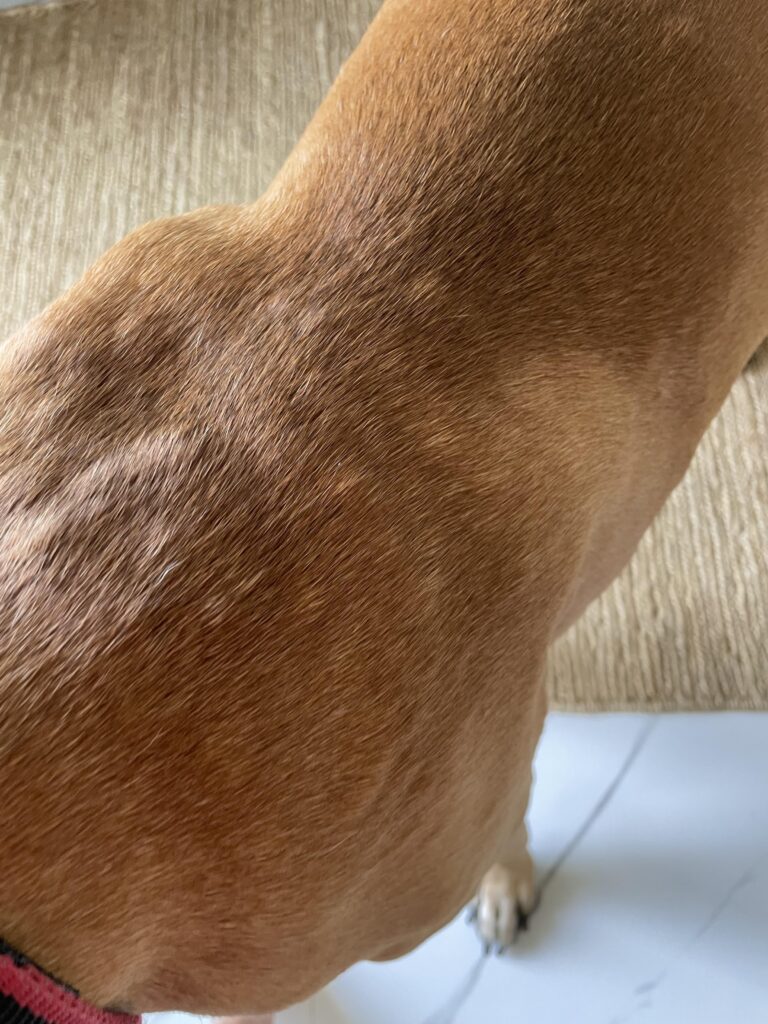Your dog may have bumps under her fur on her back due to various reasons such as skin allergies, insect bites, or infections. It’s important to have your vet examine the bumps to determine the cause and provide appropriate treatment.
If you notice bumps under your dog’s fur on her back, it’s essential to address the issue promptly to ensure your dog’s comfort and well-being. Skin allergies, insect bites, and infections can all cause bumps on a dog’s skin. By seeking veterinary care, you can identify the underlying cause and take the necessary steps to help your dog feel better.
We will explore common reasons for bumps under a dog’s fur on her back and provide guidance on how to address this issue effectively.
Understanding Dog Skin Bumps
Dogs can develop bumps under their fur on their back due to various reasons. Some common causes of bumps in a dog’s skin include allergies, insect bites, and skin infections.
Identifying Bumps Under Dog’s Fur
It’s important to identify the bumps under your dog’s fur to ensure proper treatment. There are different types of bumps that may appear on your dog, including pimples, cysts, and warts. Pimples are small inflammations of the skin that may contain pus, while cysts are sac-like structures that may be filled with fluid or other material. Warts, on the other hand, are small, rough lumps that can develop on the skin. Understanding the type of bumps your dog has can help you determine the best course of action for treatment. It’s always best to consult with a veterinarian to accurately diagnose and treat any bumps or other skin issues your dog may have.
Remedies For Dog Skin Bumps
Having bumps under your dog’s fur on her back can be concerning, but there are several remedies you can try at home. Oatmeal bath can help soothe your dog’s skin and reduce the bumps. You can also consider using apple cider vinegar rinse to alleviate the discomfort. Coconut oil application can provide relief and promote healing. Seeking veterinary care is essential to properly diagnose the condition and explore treatment options. Once diagnosed, various treatment options can be discussed, ranging from medication to dietary changes. Implementing preventive measures such as regular grooming and avoiding allergens can help manage and minimize the occurrence of skin bumps in the future.

Credit: toegrips.com
Frequently Asked Questions For My Dog Has Bumps Under Her Fur On Her Back
Why Does My Dog Have Bumps Underneath His Fur?
Dog bumps under the fur might be due to allergies, insect bites, or skin infections. It’s important to consult a vet for proper diagnosis and treatment. Regular grooming and pest control can help prevent these bumps.
Why Does My Dog Suddenly Have Bumps On His Back?
Your dog may have bumps on his back due to allergies, insect bites, or skin infections. Monitor for any changes and consult a vet if the bumps persist.
What Do Allergy Bumps Look Like On Dogs?
Allergy bumps on dogs appear as raised, red, itchy spots on the skin. These bumps are often accompanied by symptoms like scratching, licking, and hair loss. Seeking prompt veterinary care is essential to alleviate discomfort and address the underlying cause of the allergies.
How Do You Treat Bumps On A Dog’s Skin?
To treat bumps on a dog’s skin, first, identify the cause by consulting a vet. Follow their advice on medication or topical treatment, ensure proper hygiene and grooming, and monitor the bumps for any changes. Regular check-ups can help address any concerns promptly.
Conclusion
It’s important to monitor your dog’s bumps and seek veterinary advice if they persist. Keeping your pet clean and well-groomed can also help manage skin issues. Remember, early detection and proper care will ensure your furry friend stays happy and healthy.
Stay aware and always prioritize your dog’s well-being.



